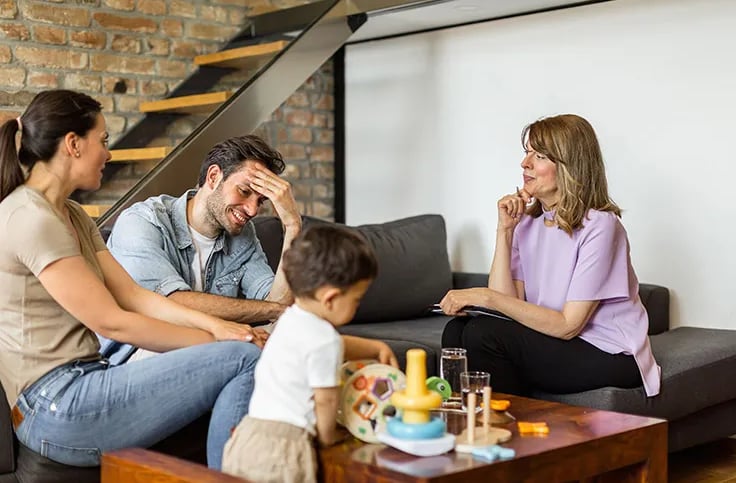Counselling & Psychotherapy


Adolescent counseling
Adolescent counseling focuses on providing support and guidance to teenagers navigating the challenges of adolescence. Counselors tailor their approach to address the unique needs and experiences of adolescents, including identity development, peer relationships, academic pressures, and mental health concerns such as anxiety and depression. Through a variety of therapeutic techniques such as talk therapy, cognitive-behavioral therapy (CBT), and expressive arts therapy, counselors help adolescents explore their thoughts and emotions, develop coping skills, and make informed decisions. Confidentiality and trust are key components of adolescent counseling, creating a safe space for teenagers to express themselves openly. Counselors also collaborate with parents, schools, and other professionals to ensure holistic support for the adolescent's well-being and growth. Overall, adolescent counseling aims to empower teenagers to navigate the complexities of adolescence and build resilience for a healthy transition into adulthood.
Child counseling
Child counseling involves providing tailored support to children dealing with emotional, behavioral, or developmental issues. Through therapeutic techniques like play therapy, art therapy, and cognitive-behavioral therapy (CBT), counselors help children express their feelings, develop coping skills, and address problematic behaviors. These sessions offer a safe and supportive environment for children to explore their emotions, manage stress, and build resilience. Family involvement is often encouraged to support the child's progress and address any underlying family dynamics contributing to the child's challenges. Overall, child counseling aims to empower children to navigate their emotions, behaviors, and relationships in a healthy and positive way.


Family and marriage counseling
Family and marriage counseling involve providing support and guidance to couples and families experiencing challenges in their relationships. In marriage counseling, therapists work with couples to address issues such as communication problems, conflict resolution, intimacy issues, and life transitions. Through techniques like Gottman Method Couples Therapy, Emotionally Focused Therapy (EFT), and behavioral interventions, counselors help couples improve communication, rebuild trust, and strengthen their bond. Family counseling focuses on addressing conflicts and dynamics within the family system, including parent-child relationships, sibling rivalry, blended family issues, and parenting challenges. Therapists help families develop healthier communication patterns, set boundaries, and resolve conflicts constructively. Both types of counseling aim to foster understanding, empathy, and resilience within relationships, ultimately promoting greater harmony and satisfaction in family and marital life.
Parenting support counselling
Parenting support counseling provides assistance and guidance to parents in navigating the challenges of raising children. Counselors offer a supportive and nonjudgmental environment where parents can explore concerns, gain insight into their parenting style, and develop effective strategies for addressing various issues. This type of counseling covers a wide range of topics including child development, discipline techniques, communication skills, managing stress, and fostering healthy parent-child relationships. Through evidence-based approaches such as positive parenting techniques, behavior management strategies, and psychoeducation, counselors empower parents to build strong, nurturing relationships with their children and navigate parenting challenges with confidence. The goal of parenting support counseling is to enhance parental skills, promote positive family dynamics, and ultimately improve the well-being of both parents and children.


Grief counselling
Grief counseling offers support and guidance to individuals who are experiencing the emotional pain and distress associated with the loss of a loved one or significant life change. Counselors provide a safe and empathetic space for individuals to express their feelings of sadness, anger, guilt, and confusion, and to explore the process of grieving in a healthy way. Through various therapeutic techniques such as talk therapy, cognitive-behavioral therapy (CBT), and expressive arts therapy, counselors help clients navigate the stages of grief, develop coping skills, and find meaning in their loss. Additionally, grief counseling may involve education about the grieving process, support in managing practical tasks related to the loss, and assistance in building a support network. The ultimate goal of grief counseling is to facilitate healing, acceptance, and adjustment to life after loss.


